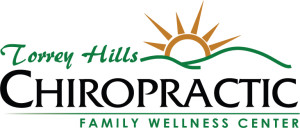Retirement – Between a Rock and a Hard Place
 Where you might find yourself when looking at your chances of achieving retirement success and some tips to soften the blow. As a financial professional, I constantly talk with people about their retirement goals and while the expectations of my clients may vary when it comes to specifics of how they will spend their “Golden Years”, the reality common to all of them is that retirement takes planning and requires giving thought to it early rather than later in life.
Where you might find yourself when looking at your chances of achieving retirement success and some tips to soften the blow. As a financial professional, I constantly talk with people about their retirement goals and while the expectations of my clients may vary when it comes to specifics of how they will spend their “Golden Years”, the reality common to all of them is that retirement takes planning and requires giving thought to it early rather than later in life.
Yes, it is true that some clients claim they are “never going to retire” because they love their work. I say it is just a difference in semantics because even these clients who do not plan on retiring per se, still need income from some source to fund “the rest of their life”. I always tell them “hopefully that will be the case however, plan for the possibility that you will no longer be able to work even if you want to and therefore you still need a plan for where you will get your income whether that be savings you stashed under your pillow, a pension fund, social security etc.”
Although traditional retirement income sources are not working as well as they did in the past, by providing enough for a retirement lifestyle, putting away something for your retirement is better than nothing. Here are some tips:
Understand the basic principals of how Social Security works and keep track of your estimate monthly payment amounts by creating an account at www.ssa.gov/myaccount.
Depending on where you work, take advantage of the applicable retirement savings program available. For example:
- 401(k) plans are offered to employees of public or private for-profit companies.
- 403(b) plans are offered to employees of tax-exempt or non-profit organizations, such as public schools, colleges, hospitals, libraries, philanthropic organizations and churches.
- 457 plans are offered to employees of state and local municipal governments (and some local school and state university systems).
- Thrift Savings Plans are offered to federal civilian and uniformed services employees.
Think of these plans as another savings vehicle that you will tap into sometime during retirement. Treat it like it is out of sight and mind and do your best to set things up so that at least 10% of each paycheck gets taken out automatically by your employer (this benefits you tax-wise) and gets invested for the long term. Some employers match employee contributions meaning the employer will contribute a certain amount to your retirement plan depending on the amount you contribute. It is a good idea to contribute to such a retirement plan regardless if your employer matches.
If you are self employed you have a variety of similar retirement plans you can contribute to and should. There are solo 401k plans, SEP IRA’s, SIMPLE IRA’s, Money purchase plans, profit sharing plans and defined benefit plans.
Since traditional pension plans are no longer commonplace you can use other vehicles to create your own pension plan. One of the ways to create a stream of income for the rest of your life is by putting money into an annuity. There are many different types of annuities and some of them can seem complicated until you understand how they work but there are many excellent annuities available in the marketplace that provide numerous benefits including giving you guarantees which are very hard to come by when it comes to your money.
______________________________________________________________
 Karen helps attorneys; mediators, individuals and couples, navigate through the financial morass of divorce and widowhood. Her expertise lies in understanding the special tax and financial issues that can plague divorce and she helps clients get their financial fair share and equitable settlements. She provides financial analysis, projections and solutions so clients can avoid long-term regret over decisions made early on in divorce and widowhood. Karen offers a range of financial, investment and insurance services that address clients’ complete financial picture and long-term needs before, during and after marriage. She is currently writing a book entitled, “To Have and To Hold Onto Your Financial Fair Share: Financial Decision Making When Marriage Ends in Divorce or Death.”
Karen helps attorneys; mediators, individuals and couples, navigate through the financial morass of divorce and widowhood. Her expertise lies in understanding the special tax and financial issues that can plague divorce and she helps clients get their financial fair share and equitable settlements. She provides financial analysis, projections and solutions so clients can avoid long-term regret over decisions made early on in divorce and widowhood. Karen offers a range of financial, investment and insurance services that address clients’ complete financial picture and long-term needs before, during and after marriage. She is currently writing a book entitled, “To Have and To Hold Onto Your Financial Fair Share: Financial Decision Making When Marriage Ends in Divorce or Death.”










You must be logged in to post a comment Login